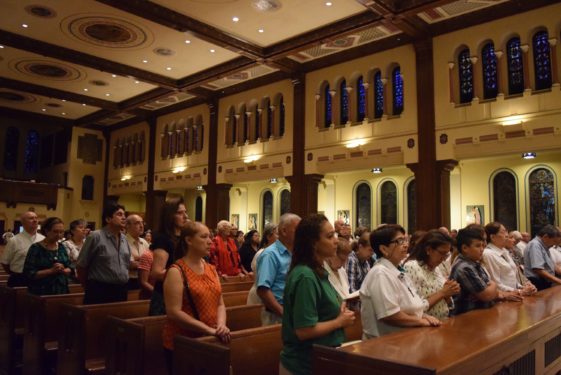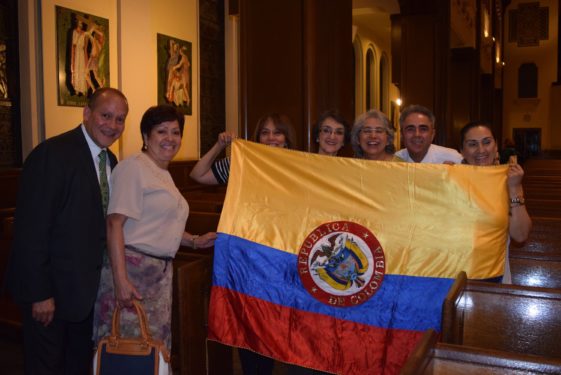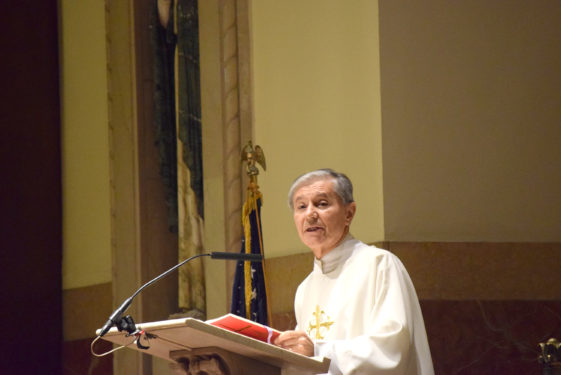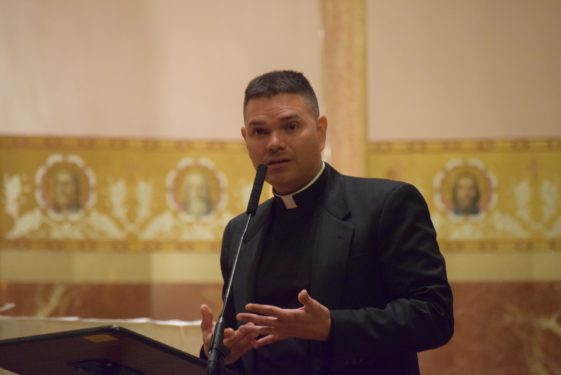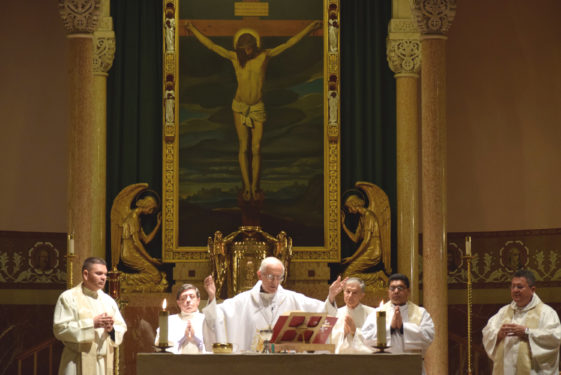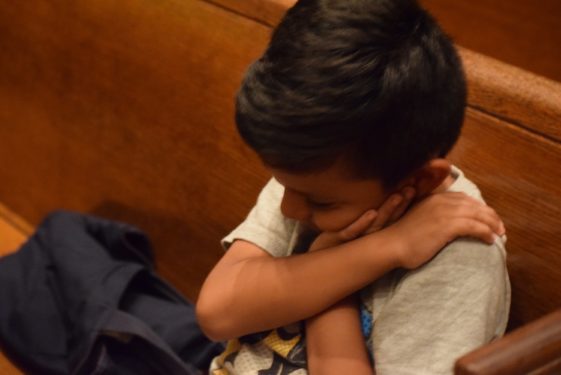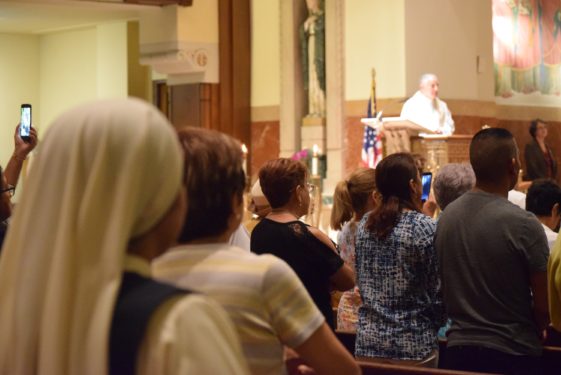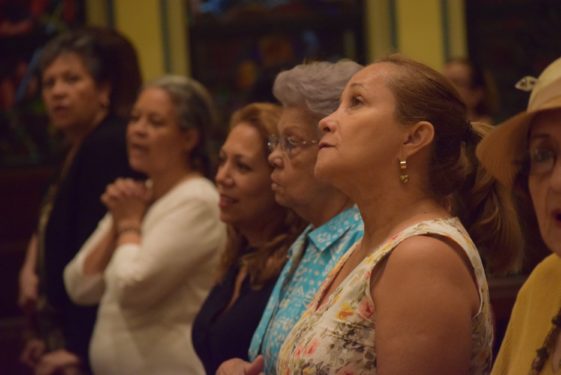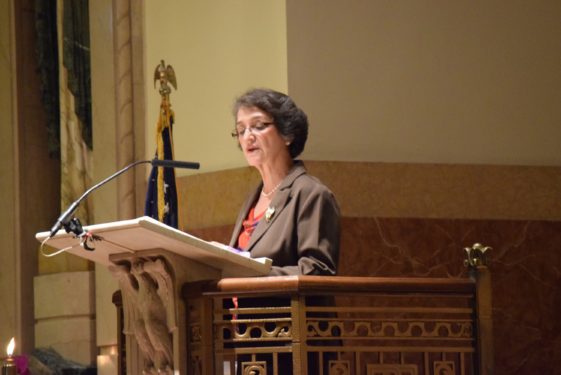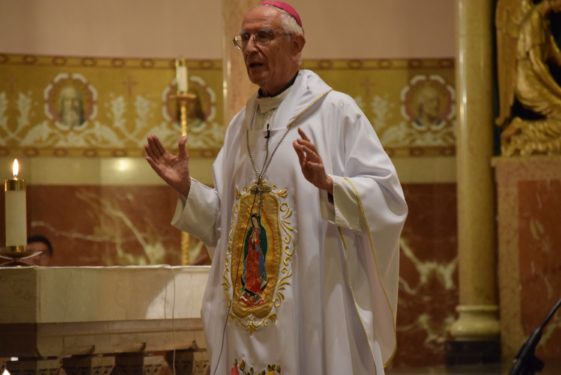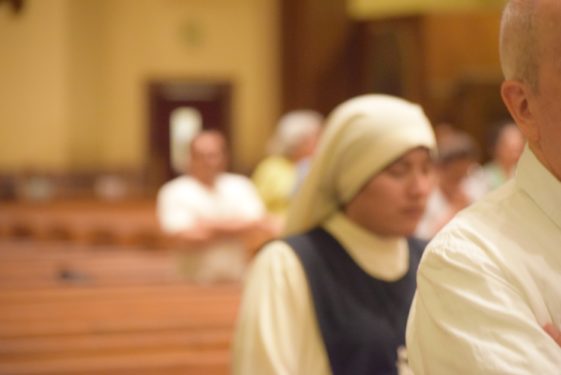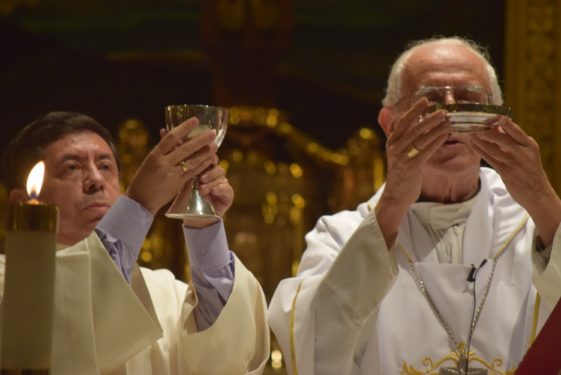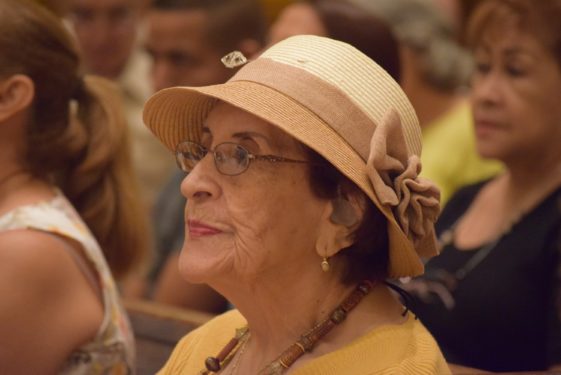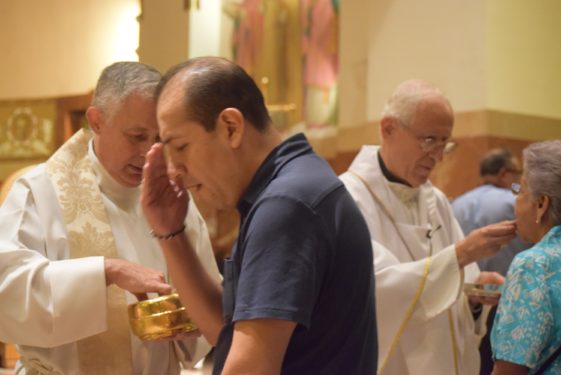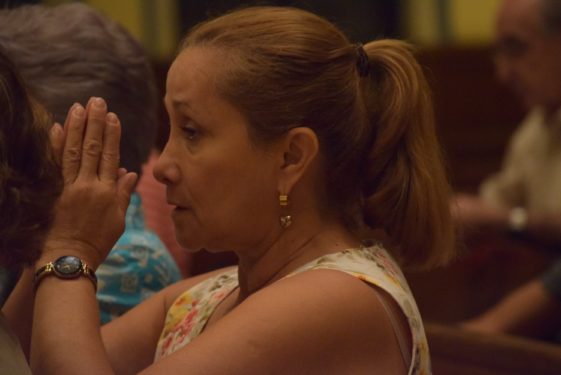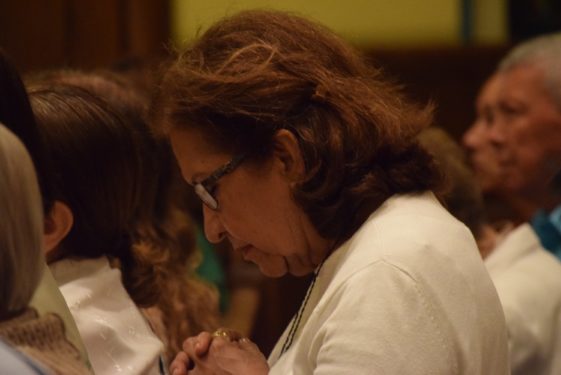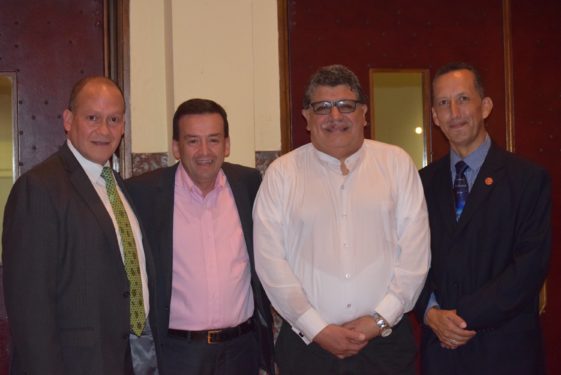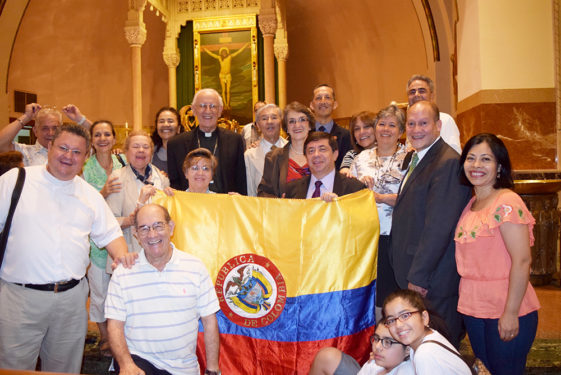
When Pope Francis addressed the Colombian people during a prayer meeting in Villavicencio, he told them that with the help of Christ alive in the midst of the community, it is possible to conquer hatred and death. He told them it was possible to begin again and usher in a new Colombia, despite more than 50 years of civil war.
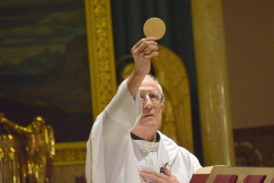
Exactly one week after Pope Francis spoke those words, nearly 100 people from the Brooklyn Diocese’s Colombian community answered his call for reconciliation and peace by celebrating a Mass of thanksgiving and open-dialogue forum Sept.15 with the former Bishop of the Colombian diocese, Bishop Alfonso Cabezas, C.M., at St. Joan of Arc Church, Jackson Heights.
Bishop Cabezas led the Diocese of Villavicencio in the early ’90s and witnessed firsthand the effects of violence and civil war. For him, one of his favorite moments during the pope’s five-day visit was when the two victims of guerilla warfare shared their stories on how they “converted to a gospel of peace and reconciliation.”
“Villavicencio is a small town, not very important, but that the Holy Father was thinking about giving us a message there, it was for me, a shocking moment,” said Bishop Cabezas, who is retired and lives in Brooklyn. “But after that moment, I wanted to deepen what God was teaching me about the presence of the Holy Father. That is a challenge for me, for my faithful and for my priests. I say ‘my’ because I belong to that diocese and I speak to them frequently.”
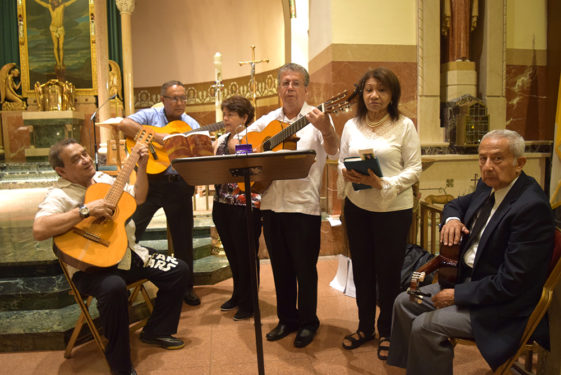
The Spanish Mass was led by music from a Colombian band, with songs of prayer that resonated within the congregation – a group that wasn’t shy to fill the airwaves with joyful voices alongside the acoustic guitars.
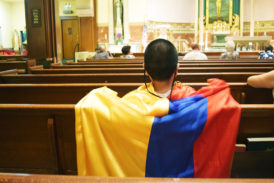
But it was the community’s pure reverence for the liturgy that radiated that evening, with many eyes either lovingly gazed at the cross on the altar or eyes closed, head bowed and hands clasped in prayer. For a country that maintains a dominant Catholic identity, the moments in silence seemed to offer solace to those gathered in the pews who were praying for those affected back home.
Even Bishop Cabezas’ homily was met with extremely receptive reactions. Some nodded their heads when he reminded everyone that the pope left the Colombian people with an example they must follow in order to set off a chain reaction for renewed hope.
“He’s a man of prayer,” said Bishop Cabezas. “He taught us to be people open to the other, with fraternity, with love, trying to cultivate the culture of encounter, very important in example for us, the culture of encounter. For instance, go to the poor people, visit the most destitute in life, try to be close to the people in need. That is the challenge, certainly we have in the memory some words of his teachings, but most important is to have in our mind the example of his life, his gestures, his way to be with the people, for me is very important for the Colombian people.”
After the Mass, nearly half of the community remained for the open-dialogue forum, led by Father Carlos Alberto Agudelo Alvarez, one of the newly incardinated priests from the Archdiocese of Medellín, Colombia, and administrator at St. Paul’s Church in Corona.
Father Alvarez’s charismatic message transitioned the evening into a community town hall meeting about Pope Francis’ message on evangelization. He spoke about how to bring the Holy Father’s trip into practical terms – how to live the message of peace in the local community, in the workforce and in the Church.
The opportunity to speak was open to anyone in attendance.
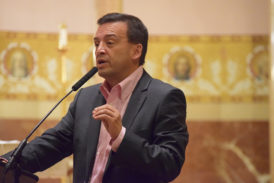
One of the attendees who approached the podium was Luis Alejandro Medina – a Telemundo journalist, Christian author and a former panelist at the diocesan World Communications Day. After sharing words of encouragement and gratitude, he was greeted with applause and smiles from a congregation who seemed all but ready to take the first steps toward healing.
For Esteban Rojas, a native Colombian and parishioner at Our Lady of Mount Carmel, Astoria, he said the Colombians in Brooklyn and Queens can play an active part in restoring peace and harmony in their homeland by not only praying for those who are involved with negotiating peace terms, but also by encouraging family members back home.
“It’s been a strong call-to-action, mainly by example,” said Rojas, whose family in Bogotá saw the pope when he visited.
“It’s not just a verbal call-to-action, but he kind of led the way by how he interacted with the people and how he encouraged reconciliation between the various parties involved because that’s been the biggest struggle, reconciliation.”

